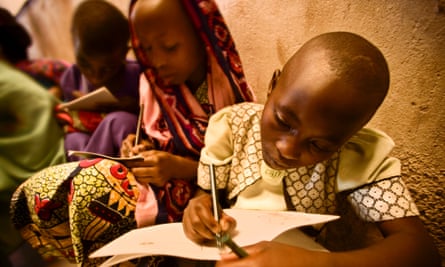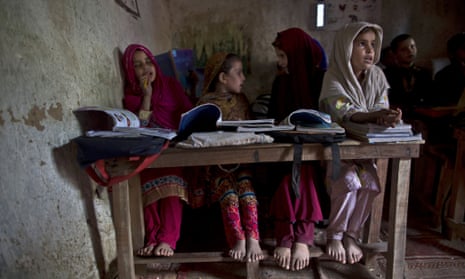“If you educate a man, you educate one person. If you educate a woman, you educate a nation”. It’s an often heard quote in development circles, and the eve of the opening of the 69th session of the UN General Assembly is a good time to pause and consider what it really means.
We know that educating boys and girls, men and women, is morally right. But educating girls and women is especially effective because when we educate them, the benefits are felt throughout the whole community. It’s a magic multiplier in the development equation.
The positive relationship between female education and overall development outcomes is well established. However, it is the dynamic that underpins that correlation which merits drawing out.
An educated woman is better able to educate her own children who, in turn, will be more likely to receive school education themselves. The family will likely be healthier, with a lower prospect of infant mortality and better maternal nutrition, including while pregnant and nursing.
An educated woman’s household is more likely to prosper as a result of a higher overall income. Just one extra year of secondary education can increase a woman’s income as much as 25% a year. By participating in the labour market, an educated woman helps boost economic productivity, leading to greater wealth for her community as well.
It is an attractive proposition: invest in women and girls, and the benefits flow not only to them but everyone around them, too. Sadly, the reverse is also true. Deny girls and women education and the whole community suffers, not just them as individuals.

Tragically, over 60m girls remain out of school around the world. Even where significant progress has been made to get girls into school, they are often deprived strong groundings in the education essentials of literacy and numeracy. This has a negative compound effect, making it hard for them to progress beyond primary school even where such opportunities are available.
Not only the human but also the economic cost of this educational deprivation of girls and women is huge, and the cost to individual economies can be as high as $1bn a year. Plan’s Children in Focus report puts the global economic price of failing to educate girls to the same level as boys at $92bn each year. To put this in perspective, that figure falls just short of the combined annual overseas aid budgets of the world’s developed countries.
The world cannot afford this any longer. We must commit to giving girls an education, girls who are not presently receiving one, and also commit to give those girls who are receiving one, the opportunity to progress to and complete their secondary education.
Getting girls enrolled in and completing primary school is the threshold task, followed by the even greater challenge of ensuring girls’ secondary education. Women with a sound education will not only earn more themselves, they will contribute more to their household and national economies. They will also be less likely to fall victim to the scourge of human trafficking and forced child marriages, and be better able to protect themselves from contracting preventable diseases like HIV.
Under the aegis of the Clinton Global Initiative, Girls CHARGE
was launched with the purpose of raising the global ambition for girls’ education. Spearheaded by the Center for Universal Education at the Brookings Institution and Hillary Clinton’s No Ceilings Initiative, these issues will be addressed directly, by raising global ambitions for girls to attend school and complete secondary education, acquiring the skills they need for work and life.
We both grew up in Australia. Education provided strong foundations for both of us to stride different stages with confidence: one of us becoming Australia’s first female prime minister, the other a leading player in some of the major theatre and film productions of the world. Without a great education, these achievements would simply have not been possible. Millions of girls throughout the world are today denied the opportunity to meet their full potential. This is not a situation any thinking or feeling person can stand by and tolerate.
As the 69th Session of the United Nations General Assembly begins, we urge the world’s leaders to back this major push to tackle the unfinished business of giving girls a great education. Those of us who have benefitted so much from our educations should feel powerfully obliged to do so. It’s what every girl and every community deserves, and it is in our hands to deliver.
Julia Gillard, Australia’s 27th prime minister, is a distinguished fellow at the Brookings Institution Center for Universal Education. Cate Blanchett is a veteran actress of stage and screen and former co-artistic director and co-CEO of Sydney Theatre Company
